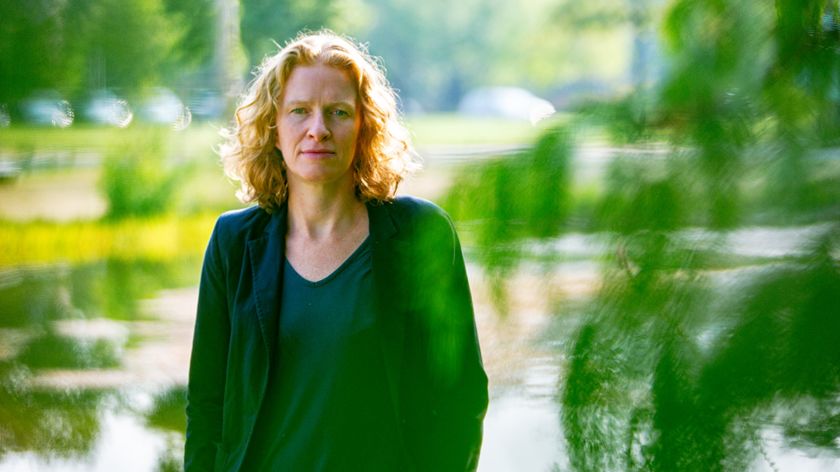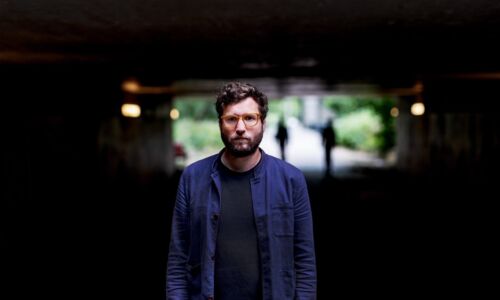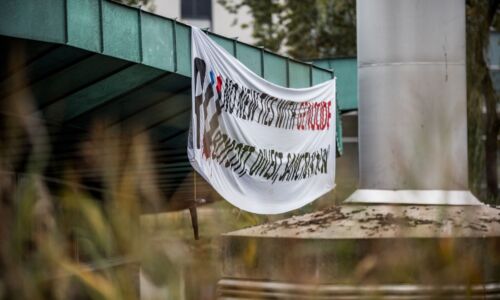Hermesdorf winner Heleen de Coninck transfers to TU Eindhoven
-
 Heleen de Coninck. Photo: Dick van Aalst
Heleen de Coninck. Photo: Dick van Aalst
Climate researcher Heleen de Coninck will start working as a professor at TU Eindhoven, but will keep working at Radboud University one day a week. In January, De Coninck received another prize for the societal impact of her work. She hopes to get more time for this societally relevant research in Eindhoven.
As of April 1 2020, Heleen de Coninck (43) will officially be a professor at TU Eindhoven, which means Radboud University is losing one of its most prominent researchers – at least, to a large extent: she will keep working in Nijmegen one day a week.
De Coninck was the lead author of the much-discussed report from the Intergovernmental Panel on Climate Change (IPCC) that concluded that drastic measures have to be taken within 20 years in order to remain below the 1.5-degree temperature rise. She addressed tens of thousands of people during the climate march in Amsterdam and has regularly voiced her opinion in the social debate on climate change. For all of this, she received the Hermesdorf prize during the last New Year’s speech at Radboud University.
Why are you switching over to TU Eindhoven?
‘At Eindhoven, I will be in a large department that deals with innovation and transition studies. The researchers, for example, focus on international technology transfer to developing countries, which is exactly my field. I tried to set up something like that in Nijmegen, but it didn’t work out – my colleagues are more interested in other fields. I was a bit alone in that area and didn’t manage to find the depth that I am looking for. I am apparently someone who needs sparring partners.
‘But it is worth a lot to me that I can stay in Nijmegen for a day. I have wonderful colleagues and I fully support Radboud University’s new strategy. The sustainability of course, but also the multidisciplinarity. It would feel foolish to leave now.’
What will you keep doing in Nijmegen?
‘I remain involved in the research that is going on here. We recently raised money through the European Horizon 2020 program, which we’ll use to conduct research with three PhD students into the social aspects of CO2 capture and storage in a steel plant. Three university teachers from two departments are involved, so I won’t take that project to Eindhoven. In addition, I will continue to supervise my current PhD candidates.
‘In Eindhoven, they give me time for my work for the IPCC’
‘In addition to the research, I remain the co-director of the Radboud Center for Sustainability Challenges, which aims to strengthen research and education into sustainability at the university. It also aims to create cohesion: the people involved have to get to know each other. I have been working on that for six years, helping to set it up.’
What does your transfer mean for your work for the IPCC?
‘I am working as an author on the big new report, in the chapter on technology transfer to developing countries. They have a lot of knowledge in that area in Eindhoven. TU Eindhoven is also enthusiastic about my work for the IPCC, so they give me time for that – which means I get a slightly lower educational burden. On average, I give one chat a week about the previous report and I often talk to the media. I also get time for that. I hope that makes everything a bit easier.’
Did you not get that time in Nijmegen?
‘I started out differently at Radboud University seven years ago. I began as a sort of training coordinator and the research was a side job. I cannot deny that it has been hectic. I did not even have one free weekend in the run-up to the approval of the IPCC report in 2018. Obviously, the university applauds that kind of visibility, but it demanded a lot from my family, and from colleagues, who had to take on tasks that I couldn’t get around to. PhD candidates and students received no feedback, or had to wait a long time. But I also blame myself for those things – I should have managed my time more effectively sometimes. It is in my nature to say “yes” too often.’
You will now be a professor. Did that play a role?
‘It wasn’t about that, but I wouldn’t have applied if it had been another associate professor position. I am ready for it. I’m just about the only IPCC lead author who wasn’t a professor. I haven’t had any problems with it so far, but people say it opens doors. And you can guide your own PhD candidates – that is also an advantage.’
Incentive policy for women
Since the summer of last year, TU Eindhoven has been applying a far-reaching incentive programme to boost the percentage of female staff. Vacancies for university (senior) teachers and professors are opened exclusively for women in the first six months. Heleen de Coninck was not appointed as part of this programme, says Professor Floor Alkemade of the TUe – future colleague of De Coninck – to university magazine Cursor. ‘The vacancy was already open before July 1 last year and was therefore equally available for men and women,’ says Alkemade. De Coninck does benefit from the extras associated with the programme, such as a start-up budget of €100,000, the possibility of setting up one’s own line of research and participation in a special mentoring programme.




Inge Bleijenbergh schreef op 7 februari 2020 om 14:26
Congratulations, Heleen. Well deserved.